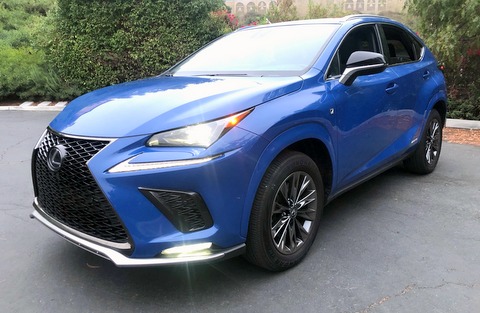What to Know Before You Make the Big Step
This article may contain affiliate links.
Buying your first car is a big step and one that you want to put a lot of thought into. With so many different cars out there, ranging from zero emission electrics to fire-breathing supercars, it can be difficult to know which car would be most suitable for your needs. With that being said, there are definitely some considerations you’ll want to make when it comes to purchasing a car. Here are some tips for buying your first car.
Set a Budget
First off, it’s important to set a budget. Everyone’s affordability is going to be different depending on how much you realistically want to spend on a car. Some will spend more money than others, and some will want to budget and spend as little as possible. Think about your monthly payments if you decide to finance, i.e., how much you can reasonably afford.

If it’s a lump sum payment, then you’ll want to factor in how much you have in savings and how much you’re willing to spend on the car. The make and model of the car will also factor into your decision as some cost a lot more than others.
Setting a budget means you won’t be tempted to overspend as that’s something that can certainly happen. This can be the case particularly when you go into a dealership. Once the sales talk kicks in, there can be a lot of additions that they can add onto the cost, so it’s good to maintain a budget where possible.
If you’re thinking about taking out a loan for the car, then be wary of how much you’re borrowing, what the interest rate is, and how much you can afford to keep spending.
New or Used?
The next thing you’ll want to consider is whether you want a new or used car. New or used is an important decision to make because there are definitely some differences between the two. There are some benefits to both, which are explained below. Regardless, it’s good to think about this in particular and with some thought as this will definitely influence the budget.

The benefit of buying a new car is that you won’t need to pay for any service charges, at least not in the first year or two. This can save you a lot of money in the necessary fixes it will need. There’s also the cost of running the car and the insurances attached. With a new car, these are likely to be a lot cheaper and more affordable.
The benefits of buying a used car is that it’ll be a lot more affordable for your wallet, and there’s likely going to be a lot more choice that fits within your budget. There will also be a lot of variety to choose from.
When it comes to disadvantages, new cars are costly and used cars will have more of a habit of breaking down. Either way, cars are often seen as money pits, it’s just how much you’re willing to put into this pit that matters the most.
Weigh up the pros and cons of a new or used car and try to decide which one you want before you go car shopping.
See the Car in Person
You always want to see the car in person before you buy. There are going to be a lot of legitimate listings and availabilities, but there will be scammers out there who will want to take your money and run with it.
Even when you see the car in person, there will be vehicles that aren’t what they say they are on the listing. Always make sure you’re visiting the car itself in order to get a good look at it from every angle. Photos will only tell you so much, so the reality of visiting car listings is to cross-check everything that you have been told about the car. Does it come with everything specified? Are there any issues you can spot?
The right documentation is also important to have, so you want to make sure you have everything you need before handing over the money. If there’s any hesitation in providing the documents or the documents don’t look right, then this might be a red flag or warning of a scam.
Take It for a Test Drive

The next thing you want to do is to take the car for a test drive. This will be the ultimate decision-maker for you as a driver, or whoever is responsible for driving the car. The car might be everything you want and perfect on paper but when you step into the vehicle, you want to be fully aware of everything. Every sound, every movement that the car makes is going to help you decide whether the car is right for you or not.
Ideally, you want to take the car for a test drive that lasts at least 20 minutes, if not a full hour where possible. The more time you can get when it comes to driving the car and testing out its functions, the better. You may want more than one test drive. If that’s the case, pick two separate times of the day so that you can experience the car both in one setting and then in another. This will hopefully give you more clarity on how the car performs.
You also want to ask questions. Don’t be afraid to ask questions about the car and anything that you’re unsure of. Not everyone is going to have a detailed experience of how cars work, and some aren’t going to know everything there is to know about cars. So don’t be shy and, if you have questions, ask them where possible. It can help make a more informed decision as a result.
Work Out Any Logistics
The next thing to do is to work out any logistics that might make the car challenging to get to you. This might be that the car is overseas and therefore you’ll need to think about shipping a car over with the costs involved. There may be certain conditions of the car that may require moving it to wherever you are.
You may have a car that you want to trade in to have extra money for the purchase, so it’s important to consider the pro and cons of doing this, too. It might not be a lot in the way of planning once you’ve paid, but some processes may end up being more complex than others.
Make sure you’ve planned your day appropriately to ensure you’ve got everything sorted ready for its arrival.
Don’t Feel Pressured To Buy Straight Away
Finally, when it comes to buying a car, don’t feel pressured to buy the first thing that you see or come across. There are lots of cars to explore, and it’s important to get a feel of each and everyone one that’s of interest. The right one also may not be on the market at the time, so it might be that you have to play a bit of a waiting game before you get your hands on the car that you want.
Buying a car for the first time is a big deal, so make the decision carefully, focusing on your needs, the type of car you want to the amount you want to spend. Don’t get pressured into buying something that you don’t need or isn’t suited for you.

I have 6+ months of driving skills but still, I am a little bit untrained so can I buy the new car or do I have to buy the old one to learn proper driving skills?
I really want to hear your opinion on this!
@Jacob,
That is really a good question, but I’m not sure the answer is clear cut. The youngest drivers like yourself have the highest accident rate, which might argue for a cheaper used car to cut down on repair costs. On the other hand, newer cars have more safety technology and might help prevent accidents. It may come down to what you can afford. Best advise–remember where you are in your learning experience about driving, take a professional driving course if you can (you’ll learn things on a racetrack that you can apply everyday on regular roads). Good luck! Let us know how it goes. –ed.
Thanks Michael.